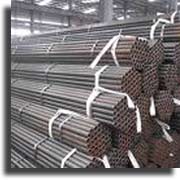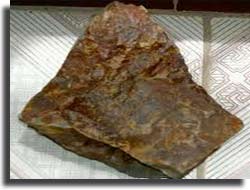| Size of the Industry |
The total production capacity stood at around 707,000 tonnes |
| Output Per Annum |
At present the smelting capacity for primary zinc in India is 260,000 tones per annum |
| Percentage In World Market |
The zinc production stood at around 4% in the world |
 History
History 
Most widely used metal after steel, aluminium and copper in the world is Zinc. It is mainly used for galvanizing steel, in alloys, batteries, rubber, paint, electroplating metal spraying and several other sectors. Because of its resistance to non-acidic atmospheric corrosion zinc is instrumental in extending the life of buildings, vehicles, ships and steel goods and structures of every kind. Zinc is a bluish-white lustrous metal and normally covered with a white coating on exposure to the atmosphere. Indian Zinc industry entered its transformation along with the privatization of the largest zinc producer, in the year 2002 the Hindustan Zinc Ltd, in favour of the Sterlite group.

The domestic Indian Zinc industry is now completely under the private sector and is in the midst of a serious expansion programme. There is an assumption that zinc demand grows by 10% till 2010 and at slower 7 % thereafter, in the year 2020 India would require zinc capacity of 14 lakh tpa, in order to be self-reliant. In the year 20008 the next round of large capacity additions was preceded. As India was one of the first countries to gain the knowledge of extracting zinc from zinc ores and start the production of zinc metal, it should have been an important player in the world zinc market but this is not the current situation. India's reputation regarding zinc is not significant as it just produces a small share of the metal in the world's production and is not able to satisfy its domestic consumption demand making it a net importer of zinc.
 Brief introduction
Brief introduction 
Indian zinc industry consists primarily of two gaint players in the market, namely Hindustan Zinc and Binani Zinc. Hindustan Zinc is a producer which is integrated having its own mines and has a market share of more than 60%. Binani Zinc is a custom smelting producer. All the major zinc ore mines in India viz. Rampura Agucha, Rajpura Dariba and Zawar mines are located in the state of Rajasthan and all of these are under the control of Hindustan Zinc. In 2004, Zinc consumption has increased from 347,000 tonnes to 470,000 in 2007, backed by demand from infrastructure and industry. The metal is important for galvanizing accounted for around 70% of the total consumption.

The demand for Zinc in India is expected to remain strong in the coming years on account of growth in the key zinc consuming industries like infrastructure, realty and manufacturing. Moreover due to the growth in automobile and consumer durables industry would also further aid the increase in consumption of zinc
India earlier was one of the first countries that started the process of extracting and smelting zinc. Since that time, the country is producing Zinc is one of the oldest countries. India has approximately 4.3% share in the total zinc smelter capacity in the Asia Pacific region. The largest company, which is indulged in the production of zinc, is a public sector company named Hindustan Zinc Limited. But now, ever since the company got privatized, the Indian industry is completely in the hands of the private sector. It can be said that the zinc industry in India, after privatization, is heading towards a major expansion programme. The major zinc mines in India which were under the control of the company are:
- Rampura Agucha mine
- Rajpura Dariba mine
- Zawar mine
 Market capitalization
Market capitalization 
The Zinc production has registered a strong growth in the country in the last few years. In 2007 the Zinc Production stood at around 4% in the world. In 2004 the zinc production increased from 265,000 tonnes in 2004 to 458,000 tonnes in 2007, registering a growth of 20% CAGR. |
 |
 Size of the industry
Size of the industry 
In the year 2002 the Indian Zinc production capacity is set to register robust growth after the government allowed privatization of the state owned company Hindustan Zinc. In the year 2008 the total production capacity stood at around 707,000 tonnes. In 2010 Hindustan Zinc plans to raise its capacity to 1 m tonnes.
 Total contribution to the economy/ sales
Total contribution to the economy/ sales 
Indian Zinc production was in the hands of the government initially as all the operations in India relating to the metal were in the hands of a public sector company - Hindustan Zinc Limited and is biggest company in India, which took care of zinc extraction and its smelting process. In the year April 2002, this company was privatized in favor of Sterlite group and after that the Indian industry is in the hands of private sector completely. The current Indian demand for Zinc metal stands at around 3.5 lakh tons satisfied with the help of domestic production and imports too. About 70% of the Indian demand comes from the galvanizing sector. In the year 2010 after privatizing the zinc sector it is expected that the country would become self-reliant to satisfy the domestic demand. After that, India may transform into a net exporter of the metal.
 Domestic and Export Share
Domestic and Export Share 
The largest zinc market in the world is the London Metal Exchange that affects the world demand and supply for zinc significantly. Zinc Metal is traded in the Indian commodity exchanges like Multi Commodity Exchange of India, National Commodity and Derivatives Exchange of India and National Multi Commodity Exchange of India.
At present the smelting capacity for primary zinc in India is 260,000 tonnes per annum, as against a domestic demand of about 350,000 tonnes per annum. Over the next 5 to 6 years, demand is expected to grow at about 12 - 15% annually, as against a global average of 5%. Domestic production capacity, however, is also expected to increase to attain self-sufficiency by 2010.
The main consumer for zinc in the domestic market is the steel industry - over 70 %of zinc is used for galvanizing. Other sources of demand for zinc include die-casting, guard rails for highways and imported-substituted zinc alloys
 Top leading Companies
Top leading Companies 
In the year 1967 HCL was incorporated, under the Companies Act, 1956 and was established as a Government of India enterprise to take over all plants, projects, schemes and studies pertaining to the exploration and exploitation of zinc deposits, including smelting and refining from National Mineral Development Corporation Ltd.
National Aluminium Company Ltd (NALCO)- in 1981 NALCO was incorporated which has become the Asia's largest integrated alumina- aluminium complex, comprising bauxite mining, alumina refining, aluminium smelting and casting, power generation, rail and port facilities. NALCO and enjoys the status of a Star Export House and a Miniratna company.
 Latest developments
Latest developments 
-
The Indian zinc consumption is likely to grow by 8% to 10% in 2009 from 500,000 tones last year, as the country's spending on infrastructure would rise despite a global slowdown.
- ndia's per capita consumption is very low at 0.4 kilograms when compared with the world average of 1.8 kilograms. With many telecoms, housing and other infrastructure projects coming up, this is bound to rise.
-
The prospect of growth is further enhanced by a boom in the vehicle industry, improved living standards of the people and rapid over-all industrialization.
-
Presently the smelting capacity for Indian zinc is 260,000 tonnes per annum, as against a domestic demand of about 350,000 tonnes per annum.
- Over the next 5 to 6 years, Zinc demand is expected to grow at about 12 - 15 % annually, as against a global average of 5%. Domestic production capacity, however, is also expected to increase to attain self-sufficiency by 2010
-
The main consumer for zinc in the domestic market is the steel industry - over 70 per cent of zinc is used for galvanizing. Other sources of demand for zinc include die-casting, guard rails for highways and imported-substituted zinc alloys.
Indian Industries
| Classified under RED category |
Aluminium industry, Cement industry, Construction industry, Copper industry, Dairy industry, Diamond industry, Fashion industry, Fertilizer industry, Film industry, Granite industry, Health care industry, Jewellery industry, Mining industry, Oil industry, Paint industry, Paper industry, Power industry, Printing industry, Rubber industry, Silk industry, Soap industry, Steel industry, Sugar industry, Textile industry, Tabacco industry, Zinc industry
|
| Classified under ORANGE category |
Automobile industry, Cotton industry, Hotel industry, Jute industry, Pharmaceutical industry, Tractor industry, Weaving industry |
| Classified under GREEN category |
Advertising industry, Agricultural industry, Aviation industry, Banking industry, Biotechnology industry, Biscuit industry, Chocolate industry, Coir industry, Cosmetic industry, Cottage industry, Electronic industry, Food Processing industry, Furniture industry, Garment industry, Insurance industry, IT industry, Leather industry, Music industry, Mutual fund industry, Pearl industry, Plastic industry, Poultry industry, Railway industry, Real estate industry, Shipping industry, Solar industry |
 History
History 

 Brief introduction
Brief introduction 

 Market capitalization
Market capitalization 

 Size of the industry
Size of the industry 
 Total contribution to the economy/ sales
Total contribution to the economy/ sales 
 Domestic and Export Share
Domestic and Export Share 
 Top leading Companies
Top leading Companies 
 Latest developments
Latest developments 
 Recent Press Release
Recent Press Release INDIAN zinc industry AT A Glance IN 2021 - 2022
INDIAN zinc industry AT A Glance IN 2021 - 2022 INDIAN zinc industry AT A Glance IN 2020 - 2021
INDIAN zinc industry AT A Glance IN 2020 - 2021 INDIAN zinc industry AT A Glance IN 2019 - 2020
INDIAN zinc industry AT A Glance IN 2019 - 2020 INDIAN zinc industry AT A Glance IN 2018 - 2019
INDIAN zinc industry AT A Glance IN 2018 - 2019 INDIAN zinc industry AT A Glance IN 2017 - 2018
INDIAN zinc industry AT A Glance IN 2017 - 2018 INDIAN zinc industry AT A Glance IN 2014 - 2015
INDIAN zinc industry AT A Glance IN 2014 - 2015 INDIAN zinc industry AT A Glance IN 2013 - 2014
INDIAN zinc industry AT A Glance IN 2013 - 2014 INDIAN zinc industry AT A Glance IN 2012 - 2013
INDIAN zinc industry AT A Glance IN 2012 - 2013 INDIAN zinc industry AT A Glance IN 2011 - 2012
INDIAN zinc industry AT A Glance IN 2011 - 2012


 INDIAN ZINC INDUSTRY
INDIAN ZINC INDUSTRY